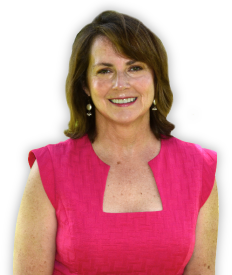Holy Moly! Is it Hot Outside!? As I’m taking some time to cool off from my work life for a week I wanted to share Bryan Cohen’s excellent article about Love. How to grow more love in a relationship. I don’t know Bryan, but I imagine that since he’s so in touch with his emotions, he’s a pretty good writing coach as well as someone who is in earnest to be a good lover!
Enjoy!

Happiness is Giving
The Lessons of Stephen Covey #3:
Love is a Verb
Whenever I write an article that doesn’t directly connect with writing, I wonder if I shouldn’t start a new blog entirely. Then I realize that for many of the people reading the site, writing is a passion or a dream. Improving yourself whether it be your mental, physical, emotional, or spiritual health is directly connected to improving how often you convert those passionate objectives. It is for this reason that today I am writing about the act of love.
I’ve mentioned before that all writing is about love or death (or love AND death in many cases). I’ve written about love since I could first put pen to paper. Love of my family, my friends, my partners, and love of myself. In middle and high school, my main objective was to have a girl fall deeply in love with me and we’d grace the halls of school holding hands and occasionally making out :). But I, like many before me, had the wrong definition of love and so when I had finally transcended nerdy awkwardness and began dating, I often found disappointment.
I was king of the grand sweeping gesture. I prepared elaborate plates of handmade chocolates, I composed poetry (some of which I wrote on driveways!), and I even flew to France in the name of love. These were the kinds of things movie, television, and book characters would do and they seemed to find great success. Their loves would kiss them eternally (or so it seemed since the stories usually ended during or right after the kiss) and they showed endless gratitude. These storybook situations are beautiful and for many young people they define what love is. You do something huge and you get huge affection in return.
In the short-term beginning of a relationship this definition would seem to hold true. Puppy-dog eyes and racing hormones abound and most gestures of love and affection are returned over and over again. Each one trumping the last in one of the most exciting games of one-upmanship ever created. But life intervenes and eventually one or both parties ceases to play the game. That’s when the true definition of love must kick in.
I’ve mentioned before that I used to retaliate often in my relationship with my girlfriend whenever an argument came up. If any of you know anything about hockey, you know that the player who retaliates is the most likely to go to the penalty box. Boy, did I log a lot of penalty minutes over the course of a few years. The problem (or what I mistakenly labeled as the problem) was that I felt underappreciated. Here I was putting energy into countless gestures of affection and good will and I wasn’t getting the same back in return. To top it all off, she got frustrated with some of my more annoying habits (messiness, absent-mindedness, poor table manners) and this hurt me.
I pompously thought to myself (try it in a snooty British accent), “How could she get mad at me when I was such a good guy? When I do all this stuff for her? She should just be happy with what she’s getting!” So, I did what any mature young man would do. I yelled at her.
This cycle went on for a while. I would yell at her (usually overreacting) and then I’d try to apologize with several sweeping gestures of affection. Shaken by me just yelling at her, she’d have a hard time returning my affection. She would get frustrated by something small and then I’d yell at her again and the chain of screaming continued.
We were battered emotionally and considered ending the relationship. We knew we cared deeply for each other but we couldn’t get out of this cycle. Until I read the words of Stephen Covey.
The Words of Stephen Covey
Stephen Covey sites an encounter with a client in his book 7 Habits of Highly Effective People. The client asks him what he should do about his marriage. He says that he’s tried everything and that there’s no love left between him and his wife. The client asked Covey what he should do about his wife and kids. “Have you tried loving here?” asks Covey. “I’ve told you, there’s no love anymore,” says the client. Covey reiterates, “But have you tried loving her?”The client begins to get mad before Covey explains. “Love is a verb, it is an action. You must do things for her, listen to her, be there for her. It’s not about what happens in return but what you do to love her.”
My whole life I had thought love was a thing, a noun, instead of an action. I had treated it like foreign currency and I got fussy like an infant when I didn’t get the ideal exchange rate. My love actions had to be independent of my girlfriend’s or this cycle would continue forever. Besides, I had a lot of faith in this system being superior to our constant bickering.
It took some time but I began to turn the other cheek (side note: isn’t that what we’re supposed to do anyway? :)) when I felt those old emotions stir up. At first, I would simply keep myself in check responding neutrally with “mmhmm”s and “Ok”s. Over time, I was able to respond to her frustration with love. I began to feel more energy when it came to the relationship. I cleaned harder, I remembered things better, I ate less like a savage, and I began to feel joy again upon seeing her. Her frustrations began to wane. Low and behold, the affection and love that I had been lacking began to flood in. Treating love as a verb did not create love as a noun, but it had created love as a verb right back toward me. The light had gone on and now I could see that this new way of showing and receiving love was far superior to the old cinematic version.
I loved (see, a verb!) my new and improved relationship, but I realized recently that this new way of looking at things applies to every single part of your life. If you love your health, you must actively love your health by eating right, exercising, and making good choices. Quick fixes are like the grand sweeping gestures of love that eventually diminish in results.
If you love your job, nurture it, be there for it, keep making small positive contributions. Your relationship with work will reflect how actively you’ve been loving it. You can extend this active love to your friendships, family, hobbies, community, and any other major part of your life as well.
Lastly, you must actively love your passion. Whether it be writing, acting, dancing, etc. To receive love from your passion you must continue to give active love to it. Drop the cynicism and the complaining about how you haven’t been given your due. Love. Love passionately and consistently. When you doing get what you want, keep loving. Even if it takes a lifetime to get active love in return, this joy will trump anything you’ve ever felt.
I know you might be saying, “that sounds like a whole lot of love.”
I have a feeling, I know what Stephen Covey would say to that.
“Exactly.”
So get out there and love someone, something, somewhere with kindness, perseverance, and joy. It’s time to write a new storybook kind of love. And you get to be the main character.
____________________
Here’s a link to Bryan Cohen’s website:
http://www.build-creative-writing-ideas.com/stephen-covey-love.html
____________________
Now please share below in the comments with me if you’ve had experiences where you turned your relationship around by being the one to “give” first.
Also, let me know if you’d like me to write on any particular topic in the future about relationships or coping with life, or spirituality.
Like and share this article if you enjoyed it and think others may benefit!
Thank you,
Warmly,
Karen Pierce
704-560-2911
Charlotte, NC
www.integrativehearthealingcenter.com








